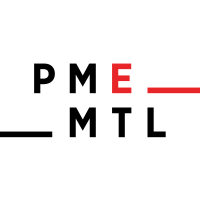Following changes in the company’s executive suite, WECO was looking to improve the teamwork among its divisions, spread out around the globe. President and CEO Bernard Pinet explains how he managed to convince Canadians, Germans, Asians, Brazilians, Mexicans and Tunisians to adjust their practices and create a uniform corporate culture for WECO.
WECO was founded in Germany in 1921, as the company was recovering from the First World War.
A manufacturer of electric connectors and then electronics, the company evolved with changing technology over the years, while remaining true to its main product line. It still sells its connectors to companies that use them in video cameras, thermostats and lighting or power distribution systems, in particular.
Bernard Pinet came on board in 2010 as CEO of the company’s American division. Four years later, he became its President. The company then began buying back shares from European shareholders, and moved its head office to Montréal.
After this buyback, Pinet set out to change the company’s corporate culture in its international divisions.
"We had to transform the organization to make it one big company, so that we would be seen as a global business,” explains Pinet, an engineer by training. “So we drew up a business plan and took control of all the WECO business units in 2015."
“We had several units that shared the same trademarks, but didn’t communicate with one another,” he explains. “For instance, our Brazilian division might sign a contract with a multinational without the knowledge of our Asian division, which was negotiating with the same client. Exchanging this kind of information makes the company as a whole much stronger.”
Changing the corporate culture and ways of doing things
To bring together the various divisions, Pinet first focused on clearly understanding the cultural differences among them.
“The different practices weren’t always obstacles,” he observes. “Sometimes they were competitive advantages. It’s much easier to approach potential clients when you already know their culture and their language.”
To successfully integrate the firm’s practices, the WECO executive team studied the mistakes made by managers of Daimler–Chrysler, the American-German marriage in 1998 that finally ended in divorce in 2007.
“The alliance soured because managers underestimated the importance of certain practices,” he explains. “For instance, in Germany, the firm’s hierarchy is important. You can’t go talk to your boss’s boss. It’s different in North America.”

To bring the different divisions together, it’s essential to first identify the cultural differences among them.
Harmonizing communications
After identifying the characteristics of its Brazilian, European and Asian divisions, WECO set about opening channels of communication. “It was a real challenge. We wanted to make sure we got our messages across, but also that they were properly perceived by everyone,” Pinet says.
The company first created a program to improve its employees’ English in its different divisions, since that was its language of communication.
Then it implemented a work routine based on communication among the different units via teleconferences. The volume of communication went up by 300%, Pinet says.
“Each division is independent, but we try to make sure there’s just one team behind them,” explains the WECO President. “We want employees in Brazil to feel that their colleagues in Asia are on the same page.”
Creating a sense of belonging and understanding other employees’ cultures
In an effort to create a feeling of togetherness and have all its units share good business practices, the company also encourages exchanges and international internships in its different divisions. “It also lets us better understand other employees’ cultures,” Pinet adds.
Now, more than two years after starting the process, WECO is gradually becoming the organization its President envisioned. The company, with 50 employees in Québec and about 400 worldwide, will continue the process this year, he says.
“When you’ve reached the point where everyone is working toward the same objective, you know you’ve succeeded,” he adds.
--
WECO Electrical Connectors is supported by PME MTL Ouest-de-l'Île.
